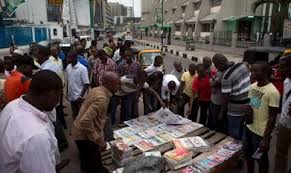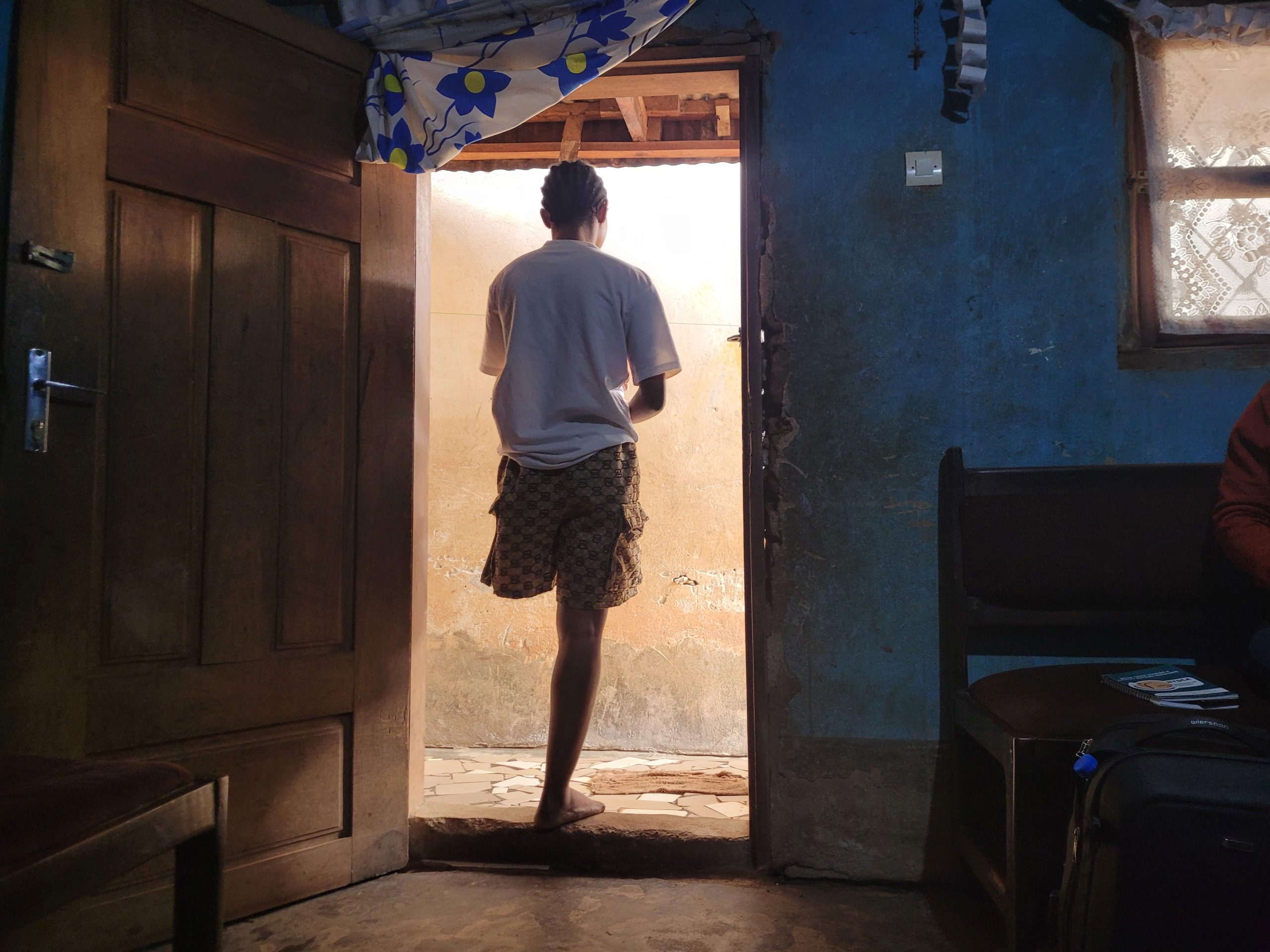The projection by the Nigerian Economic Summit Group (NESG) that unemployment rate in Nigeria is likely to increase to 37 per cent, while poverty headcount will increase to 45 per cent due to weak performance in the job-elastic sectors is one of the trending stories in Nigerian newspapers on Thursday.The Guardian reports that the Nigerian Economic Summit Group (NESG) has projected that unemployment rate is likely to increase to 37 per cent, while poverty headcount will increase to 45 per cent due to weak performance in the job-elastic sectors.
The Group in its latest macroeconomic outlook, noted that low labour absorption of sectors that will drive growth and population growth estimated at 3.2 per cent would lead to a decline in real per capita income.
Similarly, the World Bank has said that the country must invest in human capital, put in place necessary infrastructure, tackle insecurity, as well as empower the private sector to flourish to create more jobs.
Without putting these in place, the World Bank said no country would ever achieve a shared prosperity.
Country Director for Nigeria, World Bank, Dr. Shubham Chaudhuri, said this yesterday, during the launch of the NESG 2023 Macroeconomic Outlook Report.
Chaudhuri, who gave insights from a macroeconomic perspective, challenges facing Nigerians, advised the Federal Government to be judicious in spending.
Giving the outlook for the year, Head of Research and Chief Economist, NESG, Dr. Olusegun Omisakin, said real GDP growth is expected to moderate to 2.98 per cent, while economic growth would be subdued in 2023 due to strains on investment and low productivity in critical sectors.
Stating that the services sector would drive economic growth, however, he said the growth will not be strong enough to generate significant jobs.
As a result, he said unemployment will remain unabated, even as economic growth will be supported by election-related spending and improvement in the oil sector.
The newspaper says that perceived gap between result and President Muhammadu Buhari’s $1 billion spending on anti-terrorism war is drawing shocked reactions from stakeholders, who insist the country is not any safer today than it was at any time in its history. Experts, who admit military hardware are expensive all over the world, are not as concerned about the huge spending as they are about the results from government’s efforts.
Buhari had revealed that his government spent $1 billion to acquire weapons to carry out sustained operations against insurgents since 2015. He said through military operations, Nigeria has been able to reclaim territories seized by Boko Haram.
“When I assumed power in 2015, Boko Haram held about two-thirds of Borno State, half of Yobe State, and a couple of Local Council Areas in Adamawa State, all in the North East of Nigeria. We have been able to retrieve these swathes of territories by investing over $1 billion to acquire hard and software weaponry from the U.S. and other friendly countries to carry out sustained operations against insurgency since 2015.
“Our Armed Forces and those of our partners in the Multinational Joint Task Force (consisting of Chad, Niger, Cameroun, Benin Republic and Nigeria) continue to demonstrate great bravery while paying the ultimate price in securing our collective freedom,” the President said on Tuesday, at the African Conference for Peace in Nouakchott, Mauritania.
Military spending has ballooned in recent years amid escalation of insurgency and terrorist attacks. This year, for instance, defence is taking as much as 13.4 per cent or N2.98 trillion of entire spending, leaving little for critical drivers of growth, such as health and education.
The defence budget is more than twice what is earmarked for infrastructure (N1.4 trillion) and close to double of the health sector’s N1.5 trillion allocation.
Whereas experts have acknowledged the need to scale up security to protect life and property, there are concerns that the unbalanced spread of the country’s resources across critical sectors would create another social insecurity that could worsen the outlook.
Speaking with The Guardian, Dr. Austin Nweze, a resource management expert at the Lagos Business School, said the security situation is fallout of the neglect of critical areas of the economy in the past.
Nweze recalled long neglect of military spending since the return to democracy in 1999 and observed that the government is merely filling the gap. While there was an illusion of peace after years of military misadventure in politics, he noted, there was also a deliberate effort to weaken military formations.
“The funding of the military is very key. The Boko Haram, initially, overpowered the military because they were not well equipped. But some weapons were brought in at some point,” he said.
The Punch reports that the Federal Government of Nigeria borrowed about $3.27bn from five countries between June 30, 2015 and September 30, 2022, according to documents obtained by The PUNCH.
Data from the external loans reports obtained from the Debt Management Office showed that within the period, Nigeria’s borrowings from the five countries rose by 206.96 per cent from $1.58bn in June 2015 to $4.85bn by September 2022.
The five countries are China, France, Japan, India and Germany.
In June 2015, Nigeria had borrowed $1.39bn from China’s Exim Bank of China, $140.25m from France’s Agence Francaise Development, $43.10m from Japan’s Japan International Cooperation Agency, $11.73m from Germany’s Kreditanstalt Fur Wiederaufbua and nothing from India’s Exim Bank of India yet.
By September 2022, the bilateral debt profile rose with Nigeria owing China $4.09bn. It also owed France $526.48m, Japan $57.11m, Germany $153.06m, and India $27.17m.
Based on available data, it seems that Nigeria first accumulated debt from India under the regime of the President, Major General Muhammadu Buhari (retd.), with $14.79m recorded as debt from India in 2018.
However, China has been Nigeria’s largest bilateral creditor over the years.
The Federal Government had sought loan facilities from Chinese lenders to implement several infrastructural projects, including standard gauge rail lines.
In a document titled, ‘Status of Chinese loans as at September 30, 2021′, the DMO disclosed that 15 projects were funded with Chinese loans. Four of the 15 projects are rail-related.
The PUNCH recently reported that the Federal Government spent $548.67m (N246.11bn) to service railway-related debts between 2016 and 2022.
Nigeria’s current bilateral debt was 12.24 per cent of the total external debt of $39.66bn, excluding States’ external debt.
The newspaper says that the Nigerian Government has recorded a revenue shortfall of N14.28tn under the regime of the President Muhammadu Buhari, according to data from the Budget Office of the Federation.
The data was obtained from the budget implementation reports for 2016, 2017, 2018, 2019, 2020, 2021, and 2022 (January to November).
In the period under review, the Federal Government projected N43.05tn as revenue to fund its budget but made only N28.77tn (66.83 per cent of expected revenue).
In 2016, the Federal Government’s projected revenue was N3.86tn, but it realised only N2.95tn. In 2017, revenue projection was N5.08tn while revenue realised was N2.66tn. In 2018, revenue projection was N7.17tn, while the government and realised N3.87tn. In 2019, revenue projection was N6.99tn and realised revenue was N4.12tn.
In 2020, the Federal Government’s projected revenue was N5.84tn, but actual revenue amounted to N4.04tn. In 2021, revenue projection was N6.64tn, actual revenue was N4.64tn. In 2022, projected revenue was N7.48tn, actual revenue amounted N6.49tn.
The revenue shortfalls echoes concerns by the Minister of Finance, Budget, and National Planning, Zainab Ahmed, over the government’s inability to generate adequate revenue. Nigeria relies on oil for the majority of its revenue and in recent times, this revenue source has been impacted by low production and subsidy payment.
From January to July 2022, Nigeria’s oil production slumped by 28 million barrels.
Recently, while speaking about the implementation of 2022 budget, Ahmed said, “The full implementation of the 2022 budget is challenged particularly by oil revenues that are falling target at 27.1 percent as of August.
“Crude oil production challenges and PMS subsidy deductions by the NNPC constitute a significant threat to the achievement of our revenue growth target as seen in the oil and gas performance 2022 as of August.”




